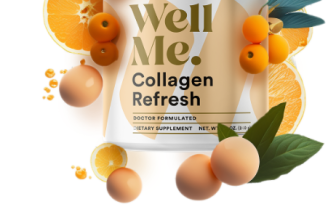Understanding Antioxidants and Their Importance
Antioxidants are powerful compounds that play a vital role in protecting your body from oxidative stress. This condition occurs when there is an imbalance between free radicals and antioxidants in your system. Free radicals can damage cells, leading to various diseases and premature aging.
By incorporating antioxidant-rich supplements into your daily routine, you can support your body’s defenses, promote overall wellness, and potentially reduce the risk of chronic conditions. These supplements are packed with nutrients that help combat free radicals, giving your body the boost it needs.
In this article, we will guide you through the world of antioxidant supplements. You’ll discover their benefits, how to choose the right ones, and tips for incorporating them into your lifestyle. So, are you ready to boost your health and embrace the power of antioxidants? Let’s get started!
What Are Antioxidants?
Antioxidants are substances that protect your cells from the damaging effects of free radicals, which are unstable molecules produced by various processes in the body—including metabolism, pollution, and exposure to harmful UV rays. Think of free radicals as tiny troublemakers that roam through your body, potentially leading to oxidative stress that can contribute to chronic diseases like cancer, heart disease, and even neurodegenerative disorders.

Types of Antioxidants
Antioxidants come in many forms, each with unique properties and benefits:
Real-World Relevance
Consider this: you may have heard that consuming a diet rich in colorful fruits and vegetables increases your antioxidant intake. That’s because bright-colored foods, such as blueberries, carrots, and spinach, are often rich in these powerful compounds. Even a small adjustment to your snack choices—swapping out chips for a handful of mixed berries—can elevate your antioxidant levels.
Understanding the different types of antioxidants will help you appreciate their role in maintaining your wellness. As we journey ahead, we will explore the myriad benefits that antioxidant supplements can offer you in your quest for optimal health.
Benefits of Antioxidant Supplements

Antioxidant supplements offer a range of health benefits that can significantly impact your daily life. Let’s explore how these powerful compounds can enhance your well-being.
Reducing Inflammation
One of the most compelling advantages of antioxidant supplements is their ability to reduce inflammation in the body. Chronic inflammation is linked to numerous health issues, including heart disease and arthritis. For example, curcumin, a potent antioxidant derived from turmeric, has been shown to alleviate inflammation markers. By incorporating such supplements into your routine, you might find relief from discomfort and improved mobility.
Improving Skin Health
Antioxidants can be your skin’s best friend. Supplements containing vitamins C and E, for instance, not only help neutralize free radicals but also promote collagen production, keeping your skin youthful and resilient. Many people have reported noticeable improvements in skin texture and clarity after adding antioxidant-rich supplements to their regimen. Imagine stepping out with confidence, showcasing vibrant skin!
Supporting Immune Function
Antioxidants like zinc, selenium, and vitamin C play a crucial role in bolstering your immune system. A robust immune response is essential for warding off infections and diseases. When your body is well-equipped with these nutrients, you’re better protected against common ailments like colds and flu. Some studies suggest that taking antioxidant supplements may help shorten the duration of illnesses—a real boon when you’re feeling under the weather.
Preventing Chronic Diseases
The potential of antioxidants to thwart chronic diseases cannot be overstated. Research indicates that a diet high in antioxidants, supplemented where necessary, may lower your risk of conditions such as heart disease and cancer. For example, flavonoids found in berries not only protect cells but also improve heart health by enhancing circulation and lowering blood pressure.
By recognizing the multifaceted benefits of antioxidant supplements, you can make informed decisions that align with your health goals. As we continue this journey, let’s delve into how to choose the right antioxidant supplements tailored to your needs.
Choosing the Right Antioxidant Supplements

Selecting the right antioxidant supplement can be a pivotal step in your health journey. With the plethora of products available, understanding how to make an informed choice is essential. Here’s what to consider when navigating the supplement aisle.
Ingredient Quality
First and foremost, pay attention to the ingredients included in the supplement. Look for products with natural sources of antioxidants—like extracts from fruits, vegetables, or herbs—rather than synthetic ones. For instance, a supplement containing grape seed extract or green tea extract is often a better option than one relying on artificial antioxidants.
Bioavailability Matters
Not all antioxidants are created equal in terms of absorption. Bioavailability refers to how well your body can utilize the nutrients you consume. Research indicates that certain forms of nutrients are absorbed better than others. For example, the bioactive form of Vitamin E, d-alpha-tocopherol, is preferred over synthetic versions. Always check if the supplement specifies the absorption rate or the form of antioxidant used.
Ideal Dosage
Next, consider the dosage. While more isn’t always better, ensure that the supplement provides an effective amount based on clinical research. Many labels recommend daily dosages of key vitamins like Vitamin C (typically 500-1000 mg) or selenium (around 200 mcg). However, consult with a healthcare professional to determine the right dosage for you.
Reading Labels Effectively
When reviewing labels, look for certifications like USDA Organic, Non-GMO, or third-party testing. This can indicate product quality and safety. For practical reference, here’s what to scan for:
Real-World Example
Imagine standing in front of a wall of antioxidant supplements. You spot a product boasting high doses of synthetic Vitamin C. Instead, opt for one enriched with camu camu, a fruit known for its natural vitamin C content and high absorption rates. Such a choice not only supports your antioxidant needs but also aligns with your commitment to quality.
With these tips in hand, you’re now better prepared to choose a supplement that complements your health aspirations. In our next section, we’ll discuss potential risks and side effects of antioxidant supplements, ensuring you remain well-informed as you navigate your wellness journey.
Potential Risks and Side Effects
While antioxidants can be beneficial, it’s essential to be aware of potential risks and side effects. Understanding these factors can help you make informed decisions about your supplement regimen.
Overconsumption Issues
One of the primary concerns with antioxidant supplements is the risk of overconsumption. Many people assume that taking large doses will yield greater benefits, but this isn’t always the case. In fact, excessive intake of certain antioxidants can lead to adverse effects. For example, high levels of vitamin E have been linked to an increased risk of bleeding due to its blood-thinning properties. It’s crucial to stick to recommended dosages to avoid such complications.
Medication Interactions
Antioxidant supplements can also interact with prescription medications, potentially diminishing their efficacy or heightening their effects. For instance, vitamin K can interfere with blood-thinning medications like warfarin, complicating dosage and treatment plans. Always discuss any supplements you’re considering with your healthcare provider, especially if you’re currently taking other medications.
Gut Issues
Some individuals may experience gastrointestinal disturbances when first introducing antioxidant supplements into their diet. Symptoms like bloating, nausea, or diarrhea can occur, particularly with high doses or certain forms of antioxidants. If you encounter such symptoms, it might be wise to reduce your dosage or consider alternative forms that are gentler on your system.
Seeking Professional Guidance
Given the delicate balance between benefits and risks, consulting with a healthcare provider before starting any new supplement regimen is highly recommended. They can offer personalized advice based on your health status, lifestyle, and specific dietary needs, ensuring you take a path that supports your wellness journey.
Armed with this knowledge, you can confidently navigate the landscape of antioxidant supplements. In our next section, we will explore practical ways to incorporate these supplements into your lifestyle for optimal health benefits.
Incorporating Antioxidant Supplements into Your Lifestyle
Integrating antioxidant supplements into your daily routine can enhance your health effectively. Here are some practical tips to help you make the most of these beneficial compounds.
Optimal Timing
Timing your supplement intake strategically can maximize their effectiveness. Many antioxidants, like vitamin C and E, are best absorbed when taken with meals. Consider:
Pairing with Foods
Combining your supplements with antioxidant-rich foods enhances absorption and efficacy. Here are some ideal pairings:
Maintaining Balanced Nutrition
While supplements are valuable, they shouldn’t replace a balanced diet. Focus on:
Real-World Example
You might start your day with a bowl of oatmeal topped with blueberries and nuts. Alongside this, you take a quality vitamin C supplement. This not only reinforces your breakfast but also combines the benefits of natural food sources with the added potency of a supplement, creating a synergistic effect that boosts your antioxidant intake.
By adopting these tips, you can seamlessly weave antioxidant supplements into your daily life, supporting your journey to optimal health. Now that you’re equipped with effective strategies, let’s explore how these powerful allies can empower you further on your health journey.
Empower Your Health Journey with Antioxidants
In conclusion, antioxidants play a vital role in promoting your health and well-being. By understanding their benefits and potential risks, you can make informed choices when selecting antioxidant-rich supplements. Remember, a balanced approach is essential—supplements should complement a varied diet rich in fruits, vegetables, and whole foods.
As you navigate your health journey, consider incorporating antioxidants thoughtfully to enhance your wellness. Stay curious, informed, and proactive about your choices, and empower yourself to achieve optimal health. The path to vibrant living starts with you!







Great article! I love how you emphasized incorporating antioxidants into our lifestyle rather than just relying on pills. I’m going to start adding more colorful fruits and veggies to my meals. 🌈 Thanks for the inspiration!
Absolutely! Eating the rainbow is a fun challenge! Plus, it makes meals look pretty! 😄
Exactly! Eating healthy can be delicious. I love making smoothies with all sorts of fruits!
So glad to hear that, Rachel! It’s all about balance and making those healthy choices enjoyable!
Wow, I never realized there were potential risks with supplements! That was eye-opening. I always thought they were harmless. Anyone have any experiences to share? 🤔
I took a high dose of one supplement and it didn’t sit right with me at all. Never again! 😂 Always read the labels, folks!
Yikes, Tommy! That sounds rough! I usually stick to food sources for that reason. Better safe than sorry!
Thanks for your comment, Emily! It’s important to be aware of the potential side effects. Always best to consult with a healthcare provider!
This article is super informative! I’ve always heard about antioxidants but never really knew what they did. I love the way you broke it down into sections. I’m definitely thinking of adding some supplements to my routine. Just curious though, do you think they really make a difference? 🤔
Thanks for reading, Sarah! Yes, many people notice a positive difference when incorporating antioxidants into their diets. Always good to consult with a doc before starting any new supplement though!
Totally! I’ve been taking them for a few months and my energy levels have improved a lot. It’s like having a personal cheerleader for my health! 😂
I’m skeptical about supplements in general. Aren’t we supposed to get our nutrients from food? Why should I spend money on pills? 🤷♂️
That’s a fair point, Liam! While food is the best source, supplements can help fill in gaps when we don’t eat as well as we should. Just my two cents! 😊
I get what you mean! But sometimes life gets busy, and pills can be a quick fix. Just gotta do your research!
Great question, Liam! It’s true that whole foods are best, but some people find it hard to get enough antioxidants through diet alone. Supplements can be a good option for them.
I tried some antioxidant supplements last year and honestly, I didn’t feel any different. Maybe I didn’t give them enough time? I think I’ll stick to my berries and greens for now. 🍓🥬
Thanks for sharing your experience, Derek! It’s always a good idea to give any supplement a fair shot, but whole foods are definitely a great choice for antioxidants!
Yeah, I think it really varies from person to person. Some swear by them while others see no change. Just gotta find what works for you!